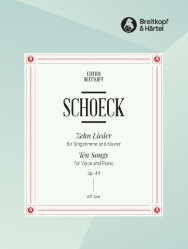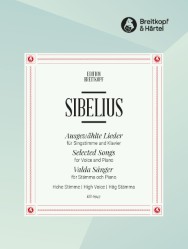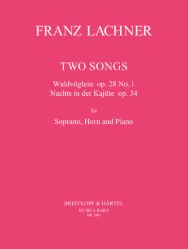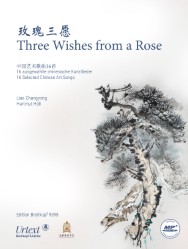Sacred Songs and Arias from Schemelli’s Song Book
BWV 439 – 507
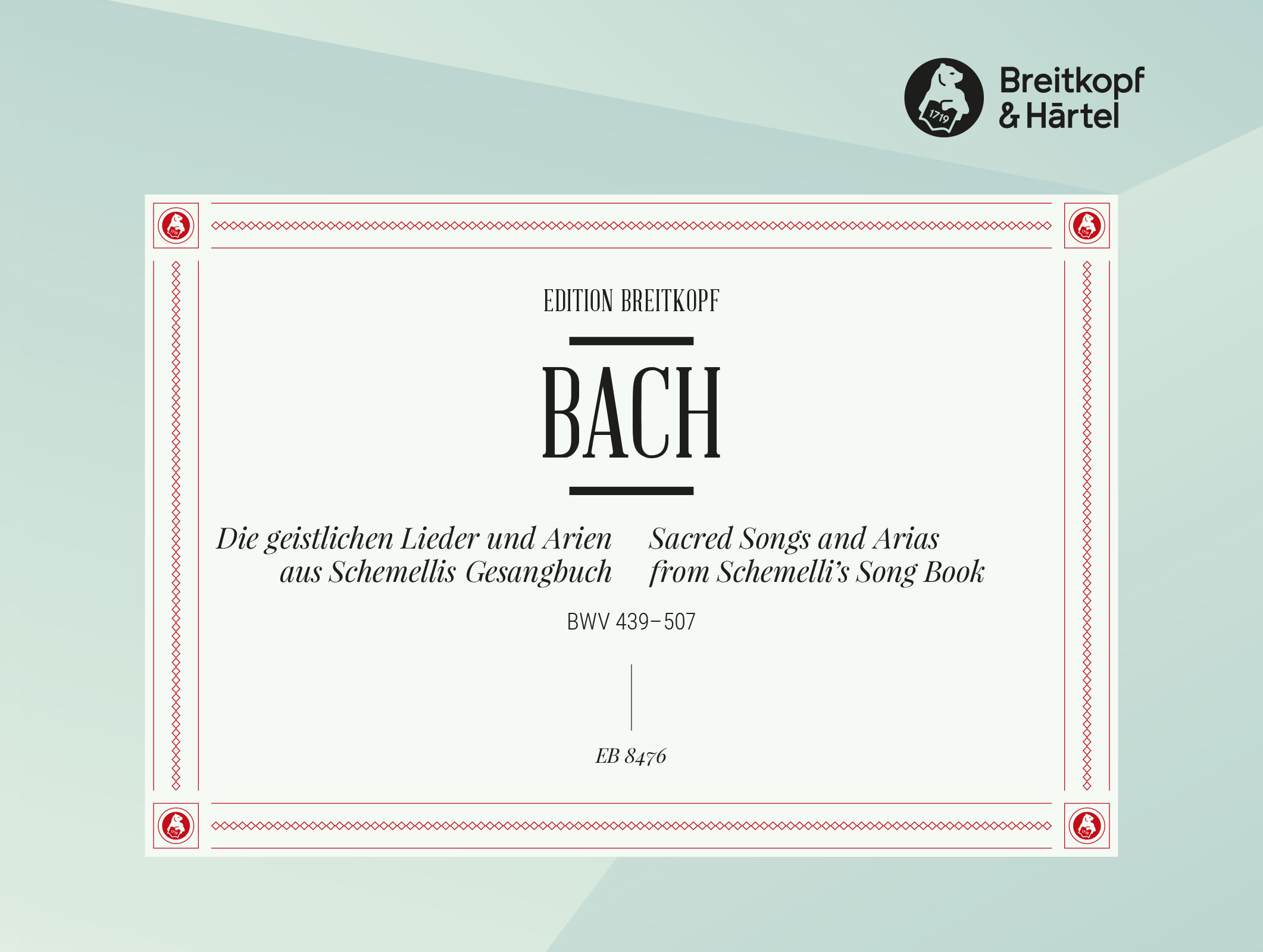
Composer: Bach, Johann Sebastian
Instrumentation: Voice and Piano (bc)
Publisher: Breitkopf and Hartel
“This Musical Song Book contains some melodies newly composed by the honourable Mr. Johann Sebastian Bach, Electoral Saxon Kapellmeister and 'Director Chori Musici' in Leipzig,…
Digital Download – PDF
Shipping costs: No shipping
R.R.P £20.00
Our Price: £17.00

